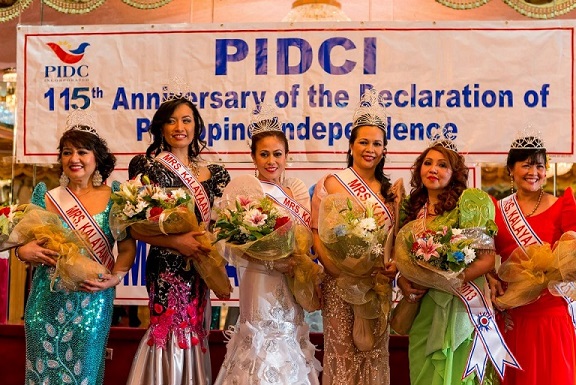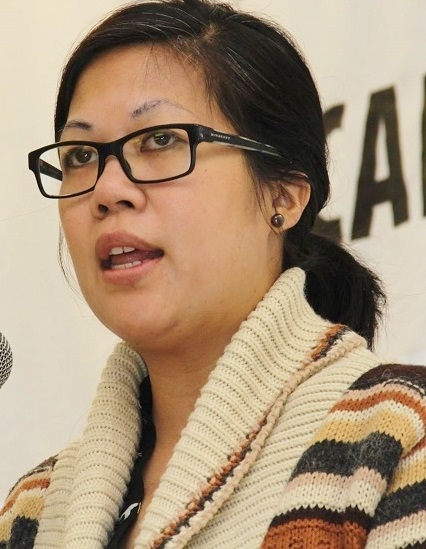Bishops to use the ‘morality vote’ against politicians
By Ludy A. Ongkeko, Ph.D.
What’s next? How much can the Philippine population take?
Most recent information received: “Catholic bishops vowed less than 24 hours ago to vigorously campaign against politicians who ignored their ‘moral’ teachings, after the Church failed to stop the passage of a birth control law.”
Reportedly, the CBCP – or the Catholic Bishops Conference of the Philippines — made the decision “to target suspect politicians in mid-term elections in May, when thousands of posts from the local village level to Congress will be contested.”
As this publication goes to press, when more encouraging news from all over the globe unfolds, what could be more ‘threatening’ than hearing from a religious group, one professing an age-old credo, one long-identified with as members of the homeland’s dominant faith, yet veering away from righteousness?
There is no doubt about the CBCP’s intent via its statement: “To demand politicians publicly voice their views on critical social issues, ranging from same-sex marriage and divorce to contraceptives and corruption.”
The vehemence of the same organization came officially from the leader of its media unit, one identified as Francis Lucas.
Lucas, in referring to the aforementioned politicians, said, “We will force them to walk the talk and state their positions on the moral stance of the church, as well as their convictions on how they will run the country.
“We will bring it out to the people and we will tell them to choose based on the answers. If a politician refuses to make a stand, that will be taken very negatively.”
Years ago, upon the initial ‘interference’ of the same bishops, shock waves filled the Philippines. It was enough for a Filipino abroad to shudder.
One staunch donor to the Catholic Church’s campaigns immediately pulled out with a declaration, “I am not continuing to support exponents of a faith that blasphemes; if I stay without question, I am dishonest. God wants the truth in all our actions. Did the bishops say they heard from God in all their opposition?”
The separation of Church and State has been ignored. How can the representatives of the Catholic Church who have been so vitriolic in their actions be received by a flock upon whom they aim to speak of kindness and adherence to the Word through the Good Shepherd?
Remaining with one’s faith is all about defying odds. About climbing uphill. About overcoming challenges. That’s what sacrifice is all about.
But in hewing to their obstinacy, about calling the Reproductive Health Law, a ‘birth control law,’ it has struck those who say they were Catholics since birth an extreme internal pain. What happened to lessons they learned as long as they can remember what
‘being kind to one’s neighbor’ is?
On stark display in the Philippines’ length and breadth: arrogance, elusiveness, refusal to respect the law. Are those teachings of the Catholic Church?
What therefore is the future of the Catholic Church in an archipelago where more than 80 percent of the Filipinos are Catholics?”
This writer is not concerned about any legacy of close to four centuries of Spanish rule; the gigantic concern is how the Filipino people will receive the continued ‘domination’ of the majority Church while the latter preaches all the doctrines that are supposed to spread the Word? What is going to happen to the oft-heard: “Follow Christ.”
In contrast, how will the fight against what is now religious interference fare? If all Catholic believers take their faith seriously, wouldn’t it be likely that they would go on crusades where more opposition to the Catholic Church would ensue because their religious freedom is at stake?
Isn’t it immoral for the bishops to prolong their campaigns urged by divisiveness when they know their stand is one of interference and yes, isn’t theirs therefore immoral, as they define it? They claim theirs is to work for a ‘morality vote,’ come the May 2013 elections.
Pray tell, how is that campaign going to work?
If what the Church’s representatives, garbed in their ministerial clothing, proceed to do what they wish, did they get any permission from Rome?
Mercifully, there are statements from solitary voices like Archbishop Jose Palma who has conceded “the Church may be starting to lose some of its influence.”
“We are tossed about by the waves of the secularist spirit, which continues to reduce the role and place of religious faith in the public sphere. Our cherished moral and spiritual values are at grave risk.”
Clearly, Archbishop Palma’s voice is a solitary one.
In hewing to the script on the ‘morality vote,’ where does the Philippine voter stand? All qualified voters should go to the polls to elect their representatives, they who care more about the country, they who dare oppose the Catholic Church because that is their right.
Morality is finite. Let there be a reminder to the bishops that theirs is only their kind of ridiculous drama as they attempt to personify abstract qualities.
What is moral is basic; it is concerned with ‘goodness,’ or ‘badness,’ of human character or behavior. May it stay that way for all Filipinos who worked for and provided the limitless welcome given to the Reproductive Health Law that could not be stifled!
————————————————————

The chocolate for anti-aging, weight loss and energy.
For more information, click here.
 FANTASIA FLORAL DESIGN for flower orders that will Impress that special person in your life this Valentine’s Day or for any occasion. Click here to order your Valentine gifts
FANTASIA FLORAL DESIGN for flower orders that will Impress that special person in your life this Valentine’s Day or for any occasion. Click here to order your Valentine gifts










